The Psychology of Decision-Making: Why We Make the Wrong Choices
Making decisions—especially those related to business or career — can be incredibly challenging, particularly when the outcome has the potential to significantly change your life.
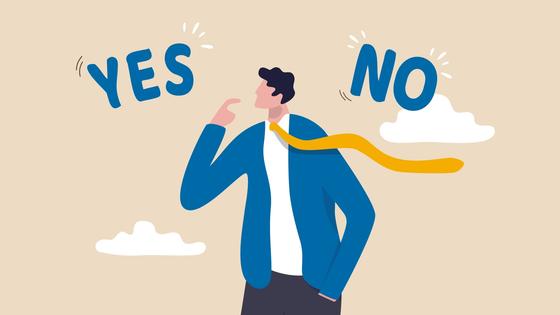
Many of us spend days or even weeks tormented by doubt, lying awake at night as we replay countless scenarios in our heads, trying to analyze every factor. Yet, even after all that, mistakes are common. And if we're forced to decide under pressure or within a limited timeframe, the likelihood of error skyrockets. Why does this happen, and more importantly, how can we make the right choices quickly and easily? This is exactly what the psychology of decision-making seeks to understand-and what our article is all about.
The Standard Decision-Making Process: How It Works
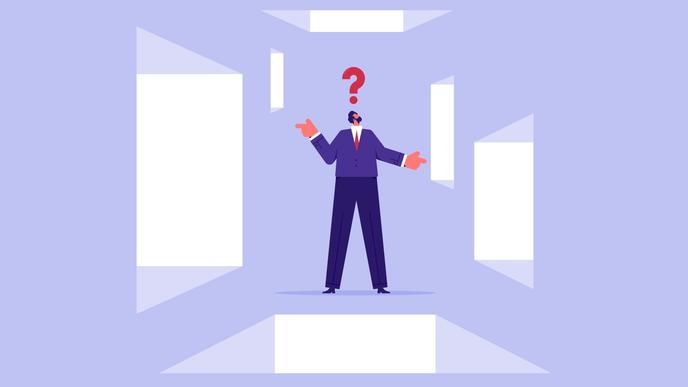
First, let's break down the basic structure of decision-making. Regardless of the domain-be it personal, professional, or otherwise-the process always follows the same sequence of steps. This algorithm is nearly impossible to deviate from (unless you're deciding blindly or by flipping a coin):
-
Problem Identification and Preparation. The first step is recognizing that a problem exists. What happened? Why does it require a decision? What caused it? This step involves analyzing the situation and gathering relevant information, which becomes the foundation for the subsequent steps.
-
Goal Setting. Once the problem is fully understood, the next step is to define the goal that the decision should achieve to resolve the issue. For example, if the problem is poor sales due to a lack of advertising, the goal might be to increase sales. There are usually several ways to reach that goal.
-
Exploring Options. This involves evaluating available options and scenarios, including their risks and costs. The goal here is to identify the best possible solution based on current resources and available data.
-
Making the Final Choice. After assessing the options, unsuitable or inefficient ones are eliminated until only one remains-the one that satisfies the criteria most effectively.
The speed and effectiveness of this process, however, are influenced by both internal and external factors that inevitably accompany any decision-making. Whether a decision is simple or complex, the following variables always come into play:
-
Motivation. The more motivated a person is, the faster they make decisions. This refers primarily to the motivation to fulfill needs-ranging from basic (hunger, safety, health) to higher-level needs (recognition, self-actualization, etc.).
-
Time. Generally, the more time one has to consider their options, the more confident they feel in their final decision. However, the process can still drag on, even if the person was initially sure of their choice.
-
Personality Type. Personality influences all other factors as it shapes our decision-making habits. For instance, a phlegmatic person typically needs more time to deliberate than a choleric, but is less likely to be swayed by emotions than a melancholic or choleric.
-
Past Experience. Previous decisions form a person's cognitive habits, beliefs, and even biases- which we'll explore in detail later.
-
Information Volume. The amount of information affects both the quality of the decision and how long it takes to make. Lack of information increases emotional influence; too much information requires more time for processing.
-
Emotions. Fear of making the wrong choice is universal. It can manifest as fear of missing out on an opportunity, fear of criticism, fear of disappointment, or fear of loss.
These factors interact in various ways and differ in their impact depending on the person and the situation. For example, if there's limited time, emotions-especially fear-may intensify, particularly for phlegmatic individuals. This means that for each person and each unique situation, the optimal mix of these factors will vary. But why do we still make the wrong choices even when the conditions seem perfect? Where do cognitive biases come into play, and how do they derail our decisions?
Why We Make Bad Decisions: The Kahneman Framework
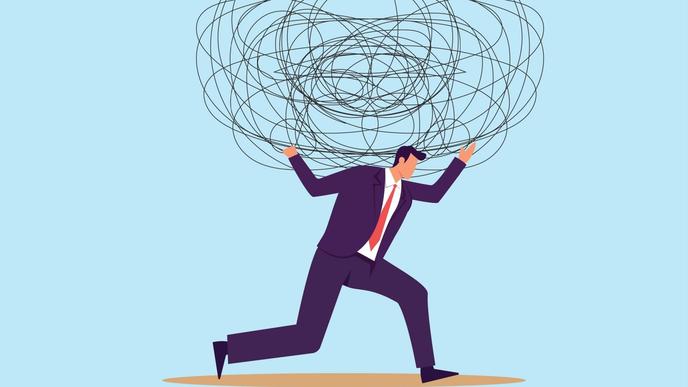
The psychology of decision-making, a robust scientific field, attempts to answer the question: why do people make mistakes when making choices, especially important ones? This field owes much of its foundation to Israeli-American psychologist Daniel Kahneman, a pioneer in behavioral economics. His life's work focused on understanding how individuals make decisions in various conditions through the lens of economic benefit.
Kahneman's surprising conclusion: people are fundamentally irrational. Contrary to the economic principle of maximizing gain while minimizing effort, individuals often rely on subjective biases and distorted perceptions. According to Kahneman, we're prone to "intellectual simplification"-a process that traps us in cognitive pitfalls and leads to decisions that actually contradict our best interests.
A famous experiment called the "Linda Problem," conducted by Kahneman and his colleague Amos Tversky, vividly illustrates this. Students were told about a 31-year-old woman named Linda, who had been active in protests against nuclear weapons and social injustice during college. Then they were asked: which is more probable-that Linda works as a bank teller, or that she works as a bank teller and is active in the feminist movement?
Most students chose the second option, even though it violates basic probability logic. Their reasoning? "Why else would the professor mention her activism?" or "Would I have joined a feminist movement if I were Linda?"-both of which are irrelevant to the actual question.
This cognitive error is known as the conjunction fallacy-the belief that more detailed or complex scenarios are more probable, even when they statistically aren't. While such mental gymnastics may feel like "deep thinking," they actually pull us further away from logic and objectivity.
How to Reduce Cognitive Bias and Make Better Decisions
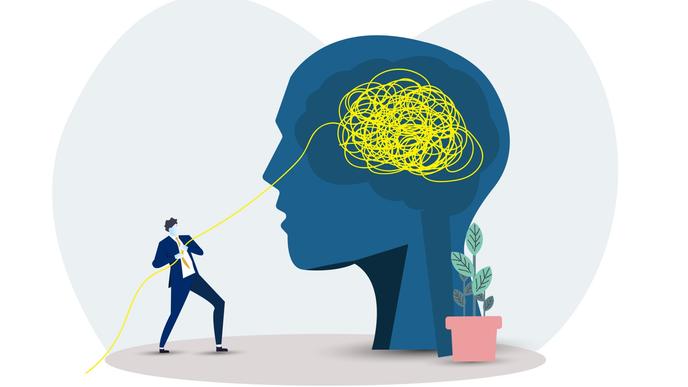
According to Kahneman, human thinking operates through two systems - System 1 and System 2:
-
System 1 is fast, automatic, and intuitive. It handles tasks that don't require much effort, like brushing your teeth or deciding between tea and coffee. It relies on habits and stereotypes, avoiding complexity.
-
System 2 is slow, deliberate, and logical. It's engaged when we face new challenges, conduct research, or analyze data-like navigating a new city or planning a trip. It demands focus and mental energy.
Errors occur when we unconsciously hand control over to System 1, especially in situations that require critical thinking. Falling back on habits, gut feelings, or emotional reactions is a telltale sign that System 1 has taken the wheel.
One example of a System 1-induced bias is "nudging." For instance, placing healthy snacks near the checkout will likely encourage healthier choices. On the other hand, putting chips and candy there will likely drive less healthy ones. Why? Because choosing what's right in front of you is easier than actively seeking alternatives. This is also why people tend to follow the majority-if eight out of ten people get their credit card from one bank, the remaining two likely will too.
Awareness of these mental shortcuts-and resisting their automatic influence-can significantly reduce poor decisions. Want to train this ability and overcome fear? Our course "Changing Mindsets. Program Yourself to Succeed" will help reprogram your mind toward more effective decision-making.
Lectera’s Online Courses by topic
Other Dangerous Cognitive Biases to Watch For:
-
Information Overload. Too much data doesn't just slow decision-making-it exhausts the brain. Limit the number of factors you consider to only the most important.
-
Intolerance for Uncertainty. People often prefer familiar options, even if they're less advantageous, simply because the unknown is uncomfortable.
-
Unequal Comparisons. When options are incomparable, decision-making becomes flawed. Instead, define your "ideal" outcome and compare all options against that standard.
-
Overestimating Your Abilities. Studies show 80% of drivers think they're above average-an impossibility statistically. The same overconfidence affects all areas and skews judgment.
-
Attribution Error. This bias involves overemphasizing personality traits and underestimating situational factors. For example, assuming your loud neighbor is inherently rude, instead of considering context.
-
Loss Aversion. The fear of losing out can delay decision-making indefinitely. A business owner choosing between two candidates may hesitate so long that productivity drops-doing more harm than choosing either.
3 Practical Tips to Make Faster, Smarter Decisions
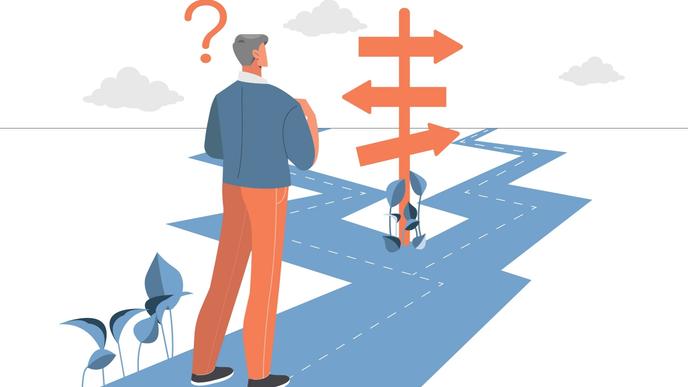
-
Don't Overanalyze Without New Information
Repeating the same thought loop wastes energy and increases anxiety. If you've already analyzed the situation thoroughly, stop-unless new data appears.
-
Use Protocols and Frameworks When Possible
Follow established processes to conserve mental resources. Use them for recurring tasks, but avoid overreliance, which can limit creativity and adaptability.
-
Try the "Pros and Cons" Method
Split a sheet into two columns: write the pros in one, the cons in the other. Then cross out anything overly emotional or subjective (e.g., "I'm scared" or "I don't like him"). Use the remaining objective points to make your choice.
Making decisions is always scary-and your brain knows it. That's why it sets up "mental cushions" in the form of biases. But these cushions can cost you opportunities and growth. The only way forward? Strive for objectivity, nurture logic, and build versatile skills with Lectera's courses so you're ready for anything.
Share this with your friends via:
Latest News

In the UK, £23 million has been allocated for the expansion of the EdTech Testbed program — pilots of educational technologies in schools and colleges.

In the US, Tuskegee University announced the launch of Tuskegee University Global Campus (TUGC) — a new online platform for distance learning.

A significant stage in the development of the alternative education system has begun in West Northamptonshire in the UK: the County Council is actively calling on parents, guardians, and trustees to participate in shaping the future of this key area.

Outwoods Primary School in Atherstone, Warwickshire, having experienced deep sadness after the loss of their famous cat, Silla, has found solace in a new pet – a Maine Coon named Aloysius O’Hara.

In modern universities, artificial intelligence, and in particular ChatGPT, is rapidly transforming from a controversial tool into a full-fledged student assistant.












 Spring skills audit: what to remove, strengthen, and “sow” in learning
Spring skills audit: what to remove, strengthen, and “sow” in learning
 9 Career Mistakes Young Professionals Make
9 Career Mistakes Young Professionals Make
 £23 million allocated for the expansion of EdTech Testbed in the UK
£23 million allocated for the expansion of EdTech Testbed in the UK
 Test: How Psychologically Mature Are You? Check Your Inner Foundation.
Test: How Psychologically Mature Are You? Check Your Inner Foundation.
 Test. Check Your Social Media Dependency Level!
Test. Check Your Social Media Dependency Level!
 Test: What Business is Right For You?
Test: What Business is Right For You?
